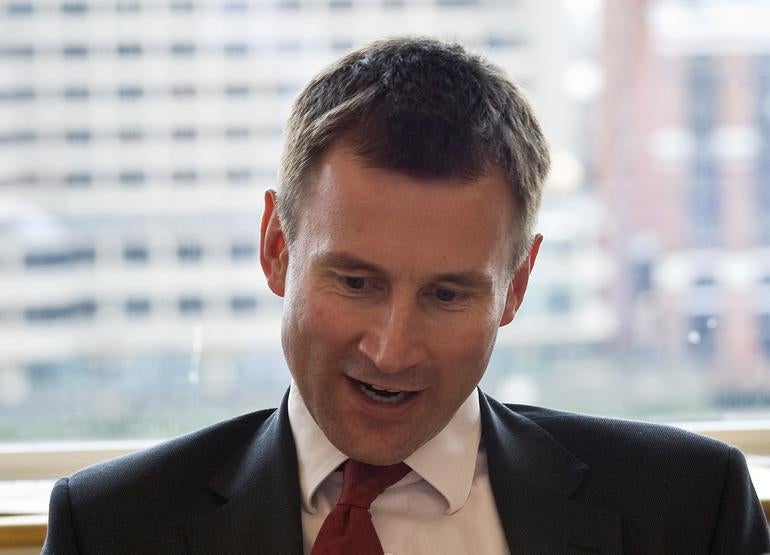
The phone-hacking scandal would have emerged earlier if the police had not “closed down their inquiry at a very early stage”, Cabinet minister Jeremy Hunt told a parliamentary committee today.
The failure to uncover the story was not “a failure of investigative journalism”, the Secretary of State for Culture, Olympics, Media and Sport told the House of Lords Communications Committee.
Asked by Labour peer Lord Bragg why it took so long for the scandal to come to light, he said: “A lot of the reason for why it took so long was the police closed down their inquiry at a very early stage so the opportunity for evidence to emerge publicly, which might have led to this issue being addressed much earlier, was closed down.”
Scotland Yard said in 2009 – two years after News of the World‘s royal editor Clive Goodman and private investigator Glenn Mulcaire were jailed for intercepting voicemail messages – that it would not carry out a new investigation into alleged phone hacking.
But last year it announced a fresh inquiry – Operation Weeting – after receiving “significant new information” from the News of the World’s publisher, News International.
Hunt added: “It took a very, very long time for it to come to the fore but I wouldn’t ascribe that to a failure of investigative journalism. I think there were other processes we need to look at.”
Hunt said the “biggest threat” to the future of investigative journalism was a “potential lack of profitability in the newspaper sector as a whole”.
But he ruled out state funding, saying: “One of the main people we want them to do investigative journalism on is the state.”
The role of good investigative journalism was “about creating a structure in society that challenges the establishment, so it’s essentially about making life difficult for the government and for parliamentarians as well”, he said.
Email pged@pressgazette.co.uk to point out mistakes, provide story tips or send in a letter for publication on our "Letters Page" blog

